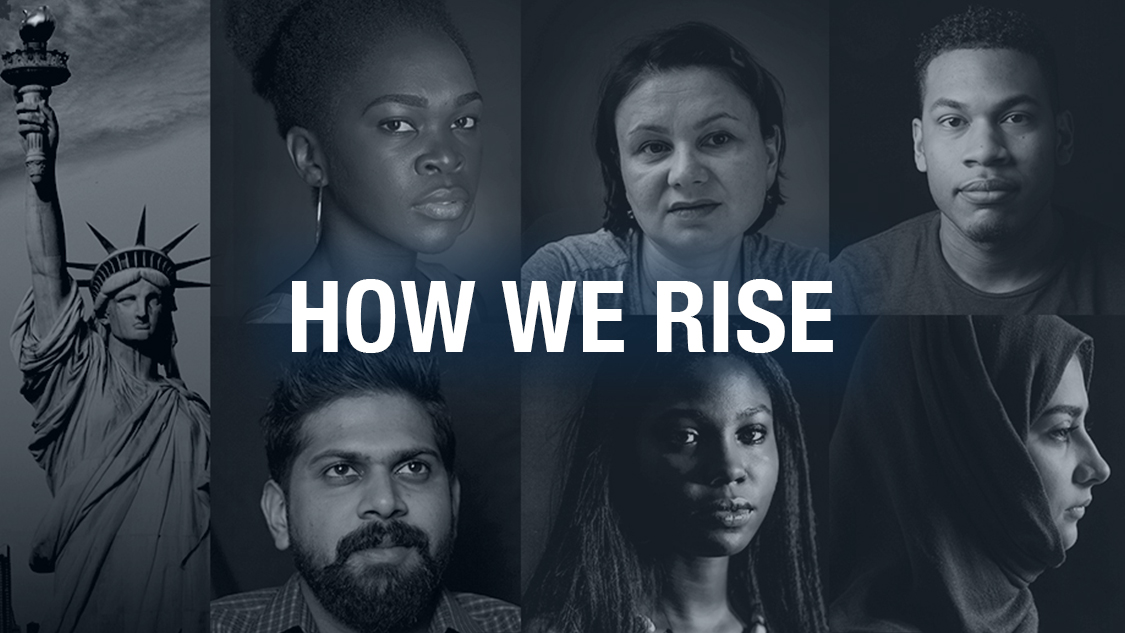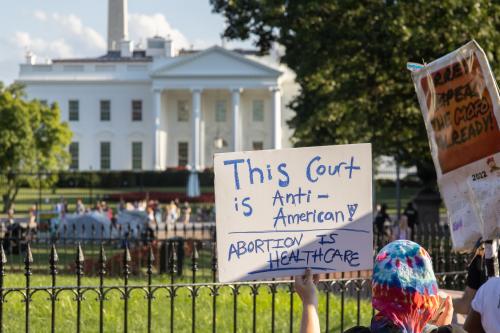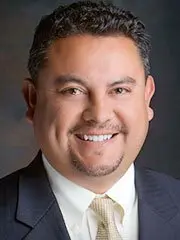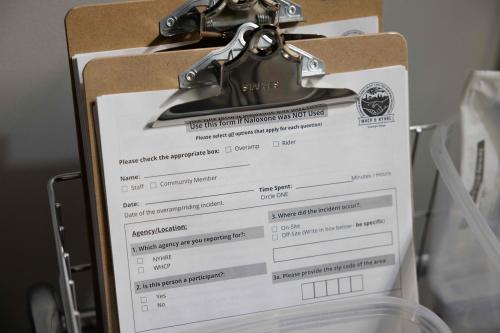Although our extant knowledge of long COVID-19 remains limited, as more data becomes available some patterns are beginning to emerge that can help provide some perspective on the road ahead. Most notably, overall, the Latino population is more likely to struggle with the lingering effects of COVID-19, often referred to as long COVID, than other American populations. This inequality in long COVID is similar to other outcomes that Latinos have been disproportionately facing over the course of the pandemic. In fact, some estimates suggest that Latinos are more than twice as likely to die of COVID-19 than white Americans.
This blog post summarizes findings from original research presented during a collaborative panel focused on the economic consequences associated with long-COVID for Latino families across the United States. The webinar will make clear that policymakers and advocates will need to help address the economic stress being generated by long COVID symptoms among Latinos.
Because Latinos often face important inequalities, they represent a key sub-group for understanding the toll of long COVID. A statewide survey of Latinos in Colorado identified that nearly one-fourth (23%) of Latinos in that state are suffering from long-term COVID symptoms. One of the most important findings from this study is that Latino parents are three times as likely to suffer from long-term COVID symptoms relative to Latinos without children (23% compared to 7%). This finding suggests that Latino families are particularly vulnerable to economic challenges associated with long COVID and motivates the deeper investigation of Latino families taken during the webinar.
Abriendo Puertas/BSP National Survey of Latino Families
Since the Colorado survey found that Latino parents appear to be much more likely to experience challenges due to long COVID relative to Latino adults who do not have children, we leveraged a national survey of Latino families with young children to dig deeper into this issue. The survey of 1,300 Latino parents and primary caregivers sponsored by Abriendo Puertas/Opening Doors and UnidosUS allows us to explore internal variation in experiences with long COVID among families.
As reflected in the figure below, respondents were asked if they or any of their children were experiencing challenges from long-term COVID-19 symptoms. With 11% of respondents indicating that they are personally suffering from long COVID symptoms, 9% reporting that their child is experiencing symptoms, and another 5% reporting that both their children and themselves are experiencing symptoms, we find that long COVID is currently impacting a fourth of Latino families across the country. If there are an estimated 14 million Latino families in the United States, a basic extrapolation based on recent U.S. Census numbers suggests that a robust 3.5 million Latino families are trying to navigate this difficult challenge.
Figure 1: Are you or any of your children experiencing challenges from long-term COVID-19 symptoms?
Source: Abriendo Pueartas National Family Survey n=1,300/ September 6-October 4, 2022/ MOE = +/- 2.7%
Across the overall population of Latino families, we see a few interesting trends in the data that help explain who among the overall Latino population is most vulnerable to long COVID. First, Latinos who are currently employed (+4% relative to unemployed) and who have a household income of $75,000 or higher (+10% above the middle-income category). Reinforcing this apparent relationship between higher socioeconomic status levels among Latinos and the propensity to suffer from lingering effects of COVID-19, Latinos who report that their personal financial situation has gotten better over the past year are twice as likely to report that they are personally dealing with long COVID (18% compared to 9% respectively) than families whose financial situation has gotten worse, and three times as likely as families whose financial situation has stayed the same (18% compared to 6%).
Second, there is an interesting pattern in the data in regard to acculturation. Latinos who are born in the United States (+5%) and who speak predominately English (+10%) are more likely to report facing challenges with long COVID relative to their foreign-born and Spanish-dominant counterparts.
Third, long COVID is having lasting and negative financial impacts on Latino families. The survey also included a follow-up question for those who are experiencing long COVID symptoms to help assess how this challenge is impacting the financial well-being of Latino families. The numbers in the figure below are staggering. Among those who are either personally experiencing long COVID or have children who are, 22% report that they have lost their job specifically as a result of the challenges from long-term COVID symptoms, and a third (33%) have lost wages because of missed work. More than a third of Latino families (36%) have depleted their savings to pay for health care costs associated with long COVID, and 9% report that their children have not been able to participate in early childhood education programming or any athletic activities because of their symptoms.
Figure 2: Have any of the following been challenges for you due to long-term COVID?
Source: Abriendo Pueartas National Family Survey n=1,300/ September 6-October 4, 2022/ MOE = +/- 2.7%
Fourth, the economic hardships associated with long COVID are more pronounced among specific sub-groups of the Latino population struggling with the disease. Gender has a marked impact on the economic challenges associated with long COVID. Although Latinas are slightly less likely than Latino males to report that they are facing lingering COVID-19 symptoms, they are much more likely to face economic challenges due to these symptoms. In fact, of the seven economic hardship questions posed to respondents, Latinas suffered more economically than Latino males in all but one area.
- 24% of Latinas were more likely to have lost their job (+6% relative to Latino men).
- 36% of Latinas lost wages due to missing work (+7% relative to Latino men).
- 37% of Latinas depleted their savings to pay for health care costs (+2%).
Not surprisingly, the direct health impact of long COVID and economic challenges associated with these lingering symptoms are generating high levels of stress among Latino families who are already taxed from the past two years of the pandemic. For example, 24% of respondents report that they are in danger of losing their job due to missed work and 21% are not able to exercise as much as they are used to—a recommended activity to help address mental health challenges. Nearly 30% report that long COVID has negatively impacted their quality of life and led them to be depressed.
Consistent with the important differences in economic stress based on gender, Latinas are more likely to be in danger of losing their job due to missed work (+9%) and are much more likely (+12%) to report that long COVID symptoms are causing them to be depressed than Latino males. Given how much the collective economic well-being of Latinas has been devastated by the pandemic, these sobering and salient numbers suggest continued financial struggles for Latinas struggling with long COVID or caring for their children who are also facing long COVID.
The webinar features results from a report authored by Latino Policy Forum that discusses the overall economic strain facing Latinos in the state of Illinois that are attributable to COVID. Given how representative the Latino population in Illinois is demographically to Latinos nationally, this report provides valuable context to help us understand the economic consequences of long COVID for Latino families across the country.
Among other findings from the full report, roughly 50% of Latinos who live in the state of Illinois currently make $15 per hour or less, the highest percentage of any racial or ethnic group in the state. Latinos in Illinois are also more likely than other groups to face housing insecurity challenges due to the rising cost of housing. Furthermore, Latinos in Illinois have faced a host of challenges in accessing public benefits to help address economic stress. This has resulted in fewer Latinos relative to other groups who have successfully obtained resources they are entitled to.
The significant financial strain long COVID is generating for Latino families is occurring at a time when Latinos in Illinois, and across the country more generally, are already having tremendous challenges with their personal economic well-being.
Conclusions and Recommendations
The findings from the Latino Policy Forum report, coupled with the survey results from Abriendo Puertas/Opening Doors and UnidosUS survey, lead us to recommend prioritizing the following policy goals. The implementation of any policies must be accompanied by an explicit commitment to ensuring that Latinos receive an equitable share of resources made available to support economic recovery.
The unique challenges associated with long COVID will require flexibility from both policymakers and employers moving forward. Arguably the most troubling finding from this report is the high percentage of Latino families who have already experienced job loss due to long COVID and who are worried they are going to be laid off because of missed work due to their lingering symptoms. We agree with our colleagues at Brookings that if all workers had access to paid sick leave, we would see a significant reduction in the spread of COVID-19 and improve families’ economic security.
In addition to large policy interventions such as expanding access to paid sick leave to all workers in the United States, employers should take informal steps to help retain members of their workforce who are struggling with lingering symptoms. This is not an easy task for employers in some instances, particularly given that Latinos tend to be concentrated in areas of the labor market where working from home is common, but the benefits of helping keep those facing challenges with lingering symptoms are not constrained to the Latino community. In fact, in states like Illinois where Latinos are a large and growing segment of the workforce, the overall economy is dependent on seeing Latinos, including those suffering from long COVID, thrive economically.
People suffering from the persistence of symptoms are eligible for disability services according to the Department of Health and Human Services. The physical impairment due to long COVID can affect walking, standing, speaking, breathing, and many other daily activities. The survey data referenced in this post makes clear that long COVID is impacting Latino youth, not just adults, so we suggest that schools should strongly consider making academic adjustments for those in K-12 and higher education settings to help ensure that they are not penalized for missed time in school due to lingering effects of COVID.
There must be a comprehensive and long-term approach to help support Latinas move out of the highly vulnerable economic standing they have been in for several years now. We agree with the recommendations made by UnidosUS to address the specialized needs of Latinas, which include reducing child care costs by providing federal subsidies or federal investment to expand the availability of child care to a wider segment of families. This is a critical policy, as it simultaneously helps families move back into the workforce and/or higher education or workforce training, but also supports Latinas who are disproportionately concentrated in the early childhood labor market.
It is becoming increasingly clear that the fight against the pandemic is far from over. We hope that our collective effort shedding light on the socioeconomic challenges associated with COVID will help generate the same level of resources and sense of urgency that the pandemic created. We will therefore continue our partnership to track the economic status of the Latino community (and other underrepresented communities) with an eye toward identifying interventions that will lead to improved economic stability for all families.
The survey data referenced herein was produced independently by a third-party firm, BSP Research on behalf of the Abriendo Puertas/Opening Doors. Outside of his work at Brookings, Dr. Gabriel Sanchez serves as Director of Research for BSP Research and was part of the group of scholars who designed and implemented this survey.
The Brookings Institution is committed to quality, independence, and impact.
We are supported by a diverse array of funders. In line with our values and policies, each Brookings publication represents the sole views of its author(s).












Commentary
The socioeconomic consequences of COVID-19 for Latino families
October 19, 2022